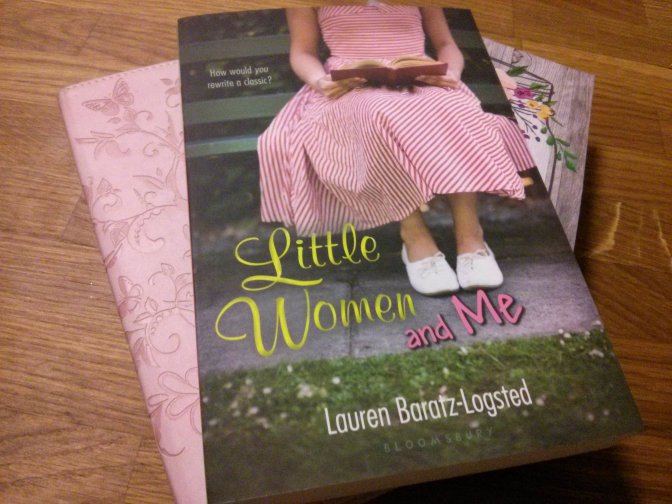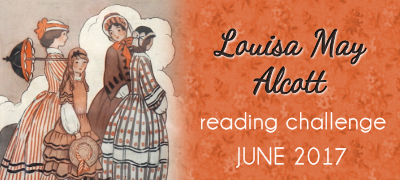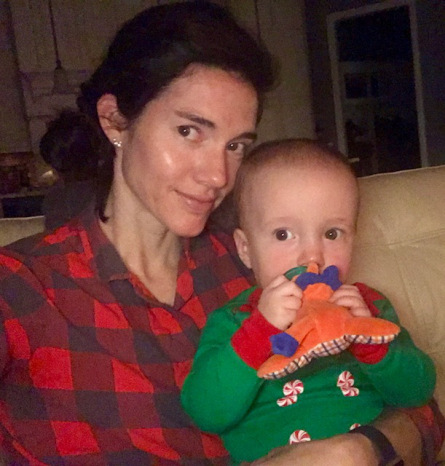By Trix Wilkins

Any attempt to “rewrite” a novel – especially one as well beloved as Little Women – is bound to be polarizing. We either love it or we hate it.
Those of us who think the original perfect as it is somewhat resent the mere attempt at alteration.
How presumptuous, we think, for someone to try to “edit” our beloved classic!
For those of us who have a gripe about the original, how we look forward to reading a variation we hope shares our sympathies and brings into the realm of reality the things we wish had happened – and with all the anticipation arising from the glimmer of unfulfilled possibilities, we eagerly read.
We are then either incredibly satisfied, or even more disgruntled with the variation that failed us, that disappointed our hopes, than we were with the original.
Now I knew going into reading Little Women and Me that Lauren Baratz-Logsted completely sympathized with me on two things I have always wished had ended differently – Beth dying, and Jo and Laurie married to different people. Thus I went into reading this novel with great expectations.
In this modern take on Little Women, fourteen year old Emily is mysteriously transported into the world of nineteenth century Concord, where she proceeds to live out the entire novel as the middle March sister. With Meg and Jo on one side and Beth and Amy on the other, Emily tries to work out how to fit into the novel until she can figure out how to escape it.
Along the way she seeks to secure Laurie’s affections, finds the shine dulling off her heroine Jo, and discovers something rather shocking about the fourth March sister, Amy. The core message of Little Women and Me is about self-discovery – Emily comes to realize the gap between who she is and who she wants to be, and how she might begin to bridge it.
Things I realized I want in a book while reading Little Women and MeFrom the first few pages, I came to recognize very clearly the things that make me like a book, the things that make me think, Goodness I want to read that again and I want to tell other people so they can read it!
I like and admire the main character – A courageous, compassionate, and intelligent protagonist with firm convictions (yet humble enough to admit when wrong).
A very close bond between the protagonist and at least one other person – An exceptionally close relationship (not necessarily romantic, could be between sisters, friends, mother-daughter, father-son…) in which we see the protagonist truly vulnerable. There is no joy like that shared with a beloved, and no suffering like that without them. It’s hard to love a character when we don’t see them loving anybody else.
A complex antagonist – Someone clearly recognizable as the antagonist yet in a way that we both dislike and understand them, so that we can see part of ourselves in them.
The protagonist helps someone else at great personal cost and sacrifice – They encounter problems, persevere, and accomplish what they set out to do. The antagonist gets trumped – the protagonist can waver in that quest (because nobody is a hundred per cent consistent and they ought to be somewhat realistic even if idealized), but in the end, they trump the antagonist.
There is some sort of moral struggle – There’s got to be a fight against something that’s worth fighting: exploitation, injustice, something that needs upsetting in the status quo.
There are challenging and intelligent conversations between characters – They discuss and debate each other’s ideas. Their dialogue is thought-provoking and bears mulling over.
Rethinking first impressionsMy first impression upon starting to read Little Women and Me was, “I don’t think I’m the target audience for this book…”
When I was fourteen I was reading The Babysitter’s Club (a group of enterprising thirteen year olds who start a babysitting agency to earn pocket money while helping neighbors), Nancy Drew (a brilliant teenaged girl detective who solves crimes), and had just been introduced to and fallen in love with Little Women and Pride and Prejudice (both so self-evidently brilliant they require no explanation).
Thus it was something of a shock to read of a fourteen year old who, when confronted with the opportunity to live in Little Women to meet and interact with the March sisters, disdained them. Then when Emily started to chase Laurie despite the fact she suspected her “sister” Jo liked him (and that he liked Jo), that really hit a button…
Emily is a difficult protagonist to love, but I think that was Lauren’s point. I suspect we’re supposed to feel appalled as we see Emily run through Little Women making snide comments and oversimplifying the complexity of the characters and circumstances that had been in the original. I don’t think the purpose of the book was for me to like Emily, as much as that is what I look for in a protagonist.
I think Lauren wrote Emily into being to make us recognize in ourselves the way we quickly judge or dismiss others who are different or think differently to ourselves (whether in books or not), the way we feel entitled to what is good and best and more so than someone else (and thus step on them to get to it) – and to stir in us a desire not to be that sort of person. We have a very stark example in Emily as to what that looks like and what an unattractive picture that is.
I have to admire the fact that it is quite gutsy on Lauren’s part to write such a heroine as Emily into the world of Little Women. And I suspect that all fourteen year olds (and the rest of us) would benefit from its main idea: consider the interests of others, not just ourselves.
P.S. There’s a pretty interesting ending…There is something of a homage to Jasper Fforde in the ending of Little Women and Me. For all who never liked Amy March, it would be something immensely satisfying (the more you despise her, the more satisfying it is). For all who are Team Amy, you would probably want to hurl this book at the wall (just a heads up). If you absolutely adored the original Little Women and would change nothing about it, I would recommend giving this a miss and opting to read about the real-life Jo and Marmee in Eve LaPlante’s Marmee and Louisa.
I read Little Women and Me as part of the Louisa May Alcott Reading Challenge. To join the challenge, hop on over to In the Bookcase!

Share this:





